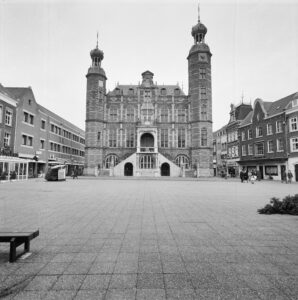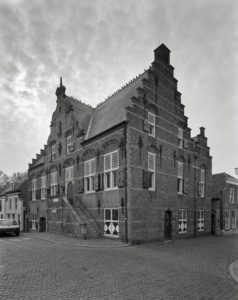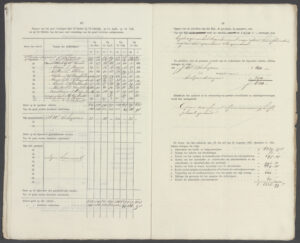The stadhuis (literally: city house) is the town hall. Town hall is where people would register births and deaths for the civil registration, and where civil marriages would take place. It was often the place where the aldermen's court convened, and where the town clerks kept their registers. … [Read more...]
Quick tip – Understand the Administrative History
To find records, it helps to understand the administrative history of the record creators involved. A few examples from my own research: If you are researching an ancestor involved in a legal dispute, you have to know which court held jurisdiction over such cases, and where they would go for appeals, plus any changes in these jurisdictions or rights. If your ancestor was a tenant of an abbey in the sixteenth century, knowing that the abbey was dissolved during the Reformation and that … [Read more...]
Dutch term – Gemeenteverslag
A gemeenteverslag is a municipal report. Since 1851, municipalities were required to write an annual report about the state of the municipality. These can be a great source of background information about your ancestors. See source: municipal report for more explanation about this source and how to use them. … [Read more...]
Source: Municipal Reports
Since 1851, municipalities were required to write annual reports about the state of the municipality. These reports rarely give information about individual ancestors, but can be a great source of information about their circumstances. Topics you can find in municipal reports: Population Elections Names of the municipal council members Names of mayor and aldermen Finances Municipal property and works Health Police National and local militia Education … [Read more...]
Dutch term – Schout
In many parts of the Netherlands, the schout used to be the term for mayor or sheriff. The schout represented the overlord and oversaw the administration and court in a district. His role combined those of a modern mayor, judge, and police commissioner. … [Read more...]





